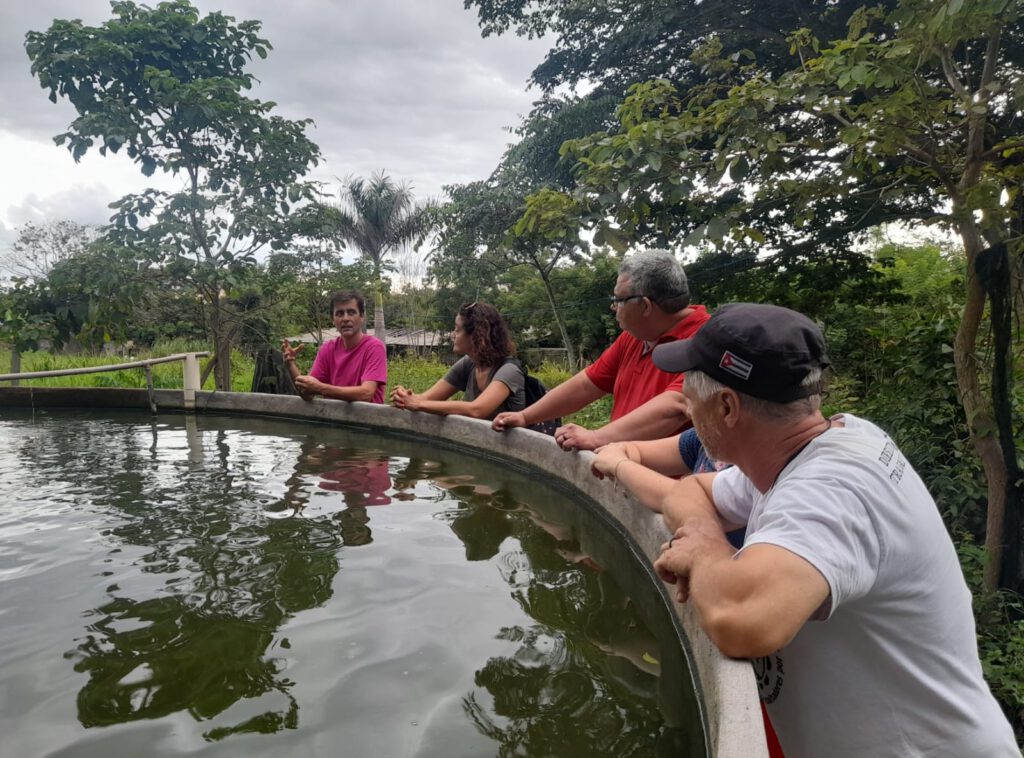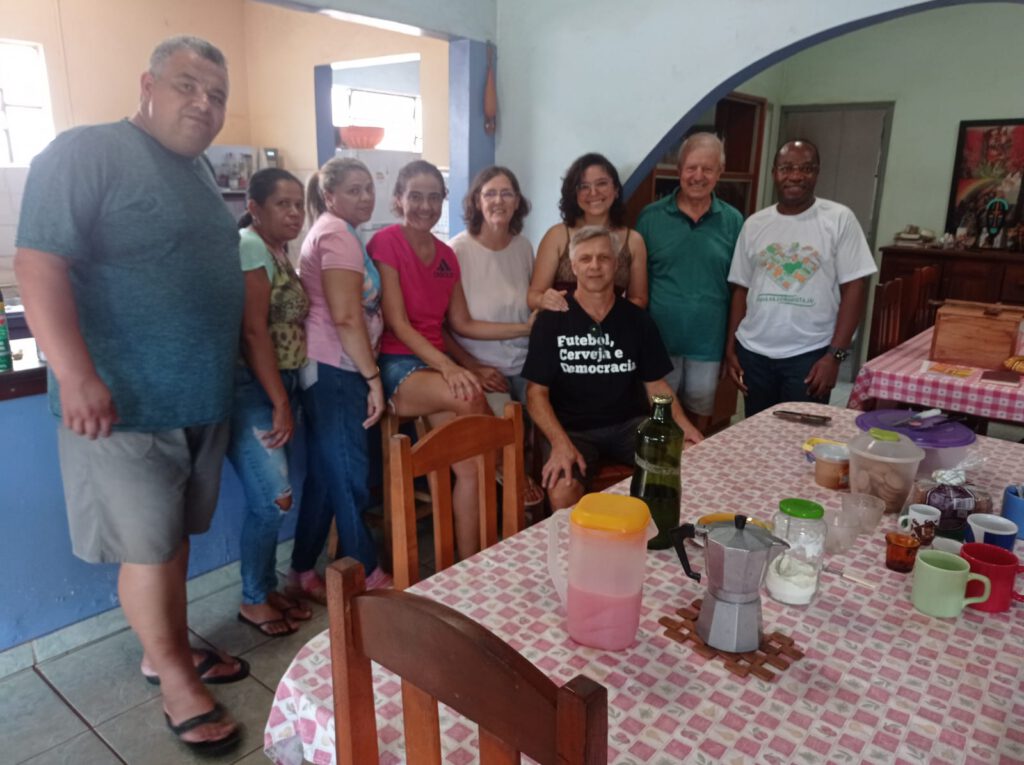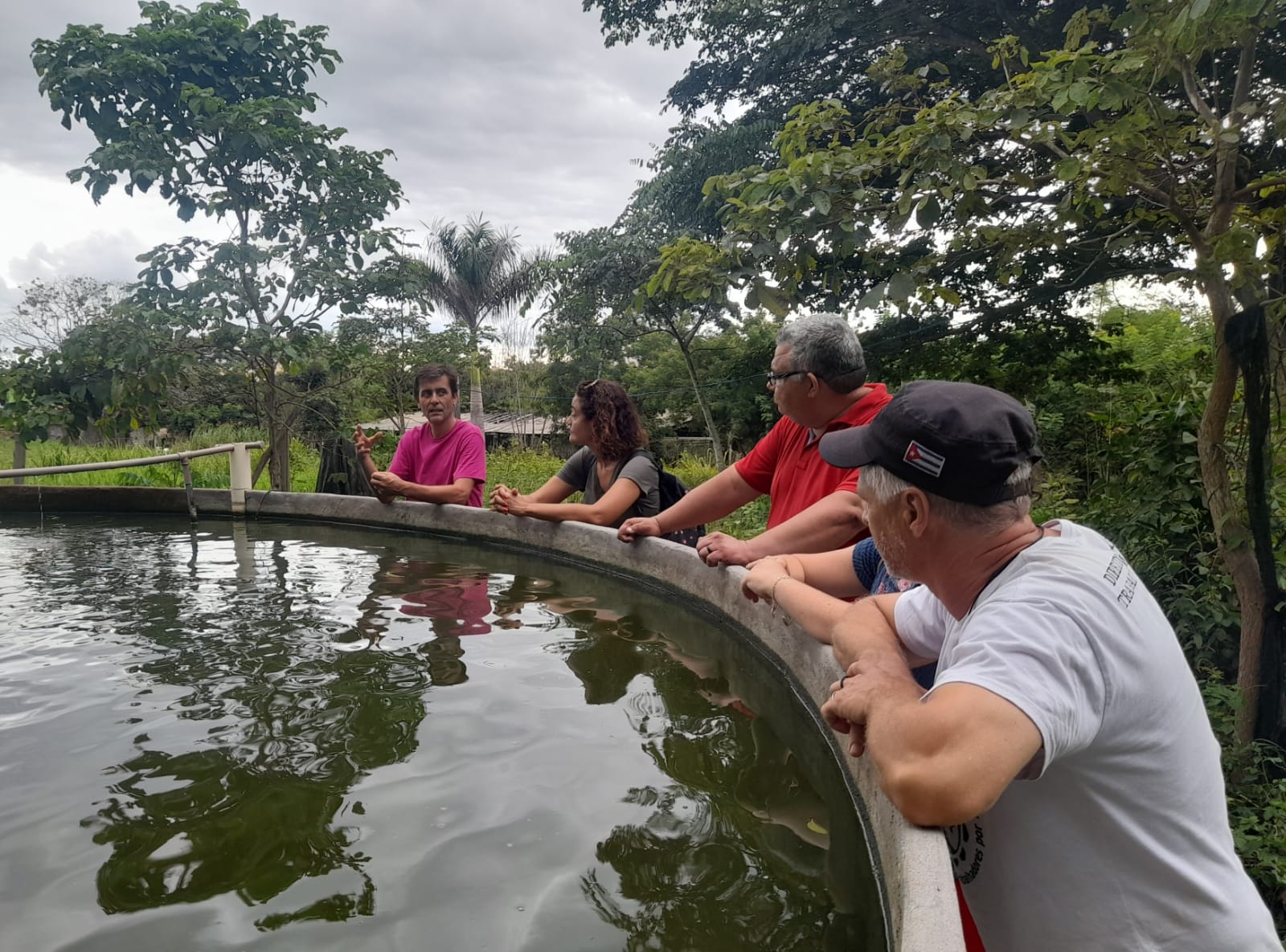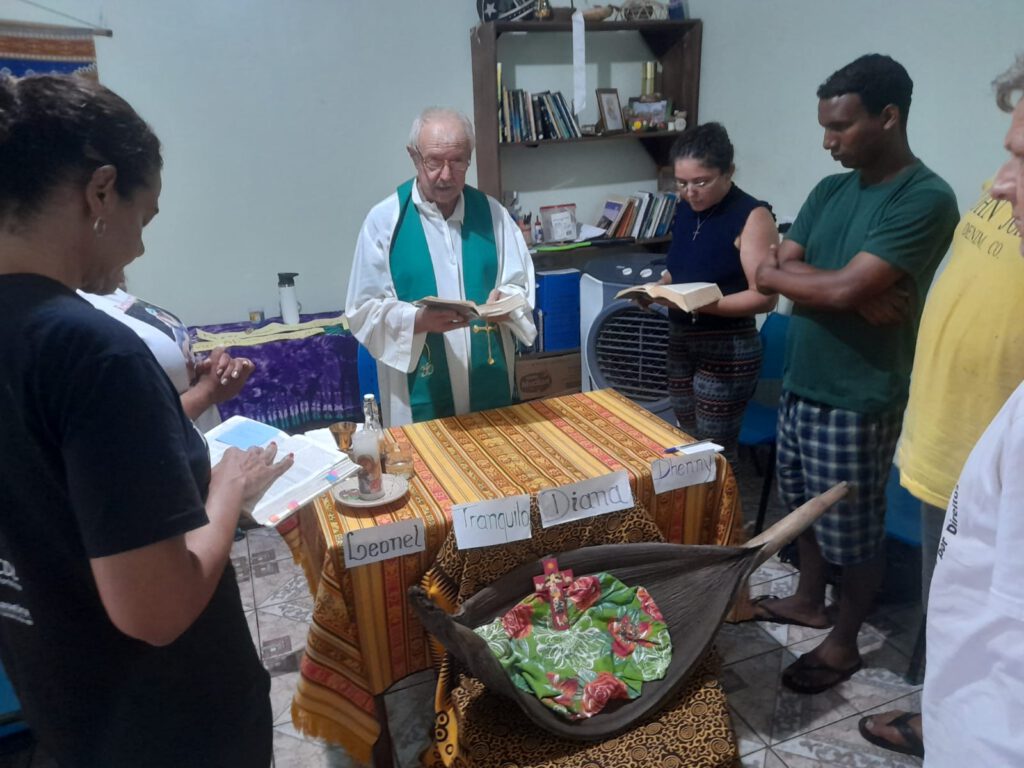And the train goes on. Up and down these tracks. We stop in front of the station below. From Piquiá de Baixo. Land of suffering people, forgotten and mistreated. Land of exploitation, of confusion and resurrection. The dragons described in the book of the apocalypse are there. There are five of them. One of them has 12 heads that spit fire and iron, forming a river of blood that begins in the north and flows into the southeast. Where death is present, fighting for life is not a choice, it is an obligation. The obligation is not to fight for your own life, but to put yourself in the fight for the life of the poorest, the most fragile, the smallest in our society.
We are surprised by another train that passes by our side and accompanies us for a few good moments. With its strong machine, its well-structured cars and wheels capable of crossing the country’s borders, this train has a name and a surname: Justice on Rails. Justice is one of those words that allow many meanings and significance. But it needs to be accompanied by struggle, dedication, and wisdom. This justice is not like many we come across around, this one has a strong purpose: the “us”. Not for there or here. It is “us. It is where it needs to be present. That’s where it really needs to be: rails. Where we can come and go. The right and safe way. But this last name is determinant, it goes where justice is acclaimed and is necessary. It is these tracks that guide, that direct, that lead, the dedicated work of all those who put themselves on the train of life.
There were many stations that helped us get to know more of that piece of land and dream. The ground of people who work, who do, and who insist. A dream dreamt by those who feel the burning of the missionary call, the dream of many and the call of all. We got to know the school that is family, that is rural, but that the asphalt of the city leads us to. A family with many fathers and mothers. Planting knowledge, watering with doubts and harvesting lives. Young students who have a thirst for knowledge, who disconnect from their families to live connected to learning. Educators who are not teachers. They are beyond. If we have a word that represents the one who teaches, who is dedicated, who overcomes limits, who puts body and soul into the art of teaching, who does not measure efforts and does not count resources. These are the missionaries of education, or educators in mission.

From afar we can already see the next station. Full of welcoming people. They are the ones who form the communities: of the Rosário and Santa Luzia. They are women, men and children. They are elderly, bedridden and barefoot. They are everyone who makes us learn about life and living. It’s a quick conversation, a broad smile, but always, a gesture of affection that always accompanies them.
It was at this station that we shared the food, drank juice, lots of juice, shared our anguishes and doubts. It was there, in that little piece of Brazil, that we met to learn, with each other, with those who welcomed us, and with everyone else who joined us on this trip, under the tracks of humility and unconditional love.

Tranqüillo Dias





